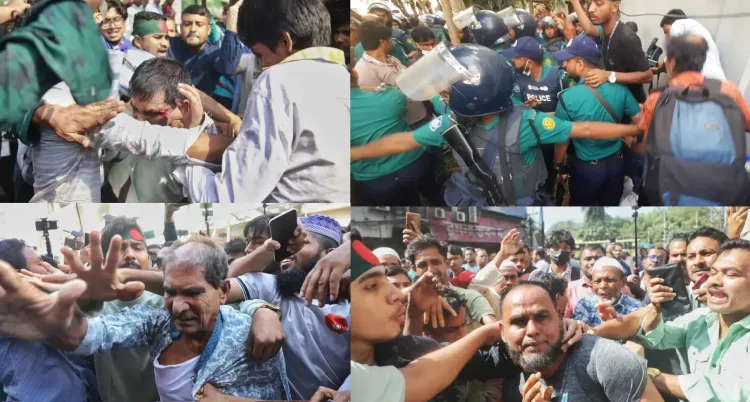UN Calls on Bangladesh to Preserve Political Pluralism

Synopsis
Key Takeaways
- UN recommends no political party bans in Bangladesh.
- Concerns over the impact on multiparty democracy.
- Interim government has banned BCL, raising alarms.
- SAD campaigns for a ban on Awami League.
- High Court orders registration of BMJP.
Dhaka, Feb 12 (NationPress) The United Nations has urged Bangladesh to avoid imposing bans on any political parties to ensure the preservation of a multiparty democracy.
"Avoid bans on political parties that could hinder a return to a true multiparty democracy and disenfranchise a significant portion of the Bangladeshi electorate," stated a report released by the Office of the United Nations High Commissioner for Human Rights (OHCHR), as reported by the prominent Bangladeshi newspaper Prothom Alo on Wednesday.
In October of last year, shortly after the interim government assumed power following the ousting of former Prime Minister Sheikh Hasina, the government prohibited the student faction of the Awami League, known as the Bangladesh Chhatra League (BCL), under the Anti-Terrorism Act of 2009. This ban was justified by claims of BCL's involvement in serious crimes including murder, torture, and terrorism, and was perceived as a step towards banning the parent party itself.
On Wednesday, the coordinators of Students Against Discrimination (SAD) reiterated their call for a ban on Hasina's party, as they continue their social media campaign with the hashtag #BanAwamiLeague.
In a separate matter, the High Court of Bangladesh ruled on Tuesday that the Election Commission of Bangladesh must register the Bangladesh Minority Janata Party (BMJP) as a political entity, following a legal challenge from its President Sukriti Kumar Mondal concerning the EC's earlier refusal.
Since the orchestrated coup in August 2024 that led to Hasina's ousting, incidents of vandalism and mob violence have surged throughout Bangladesh.
Recent brutal assaults on Awami League leaders culminated in the arson of the historical residence of Sheikh Mujibur Rahman, the founding father of Bangladesh.
The interim government has faced accusations of fostering radicalism, having lifted bans on extremist Islamic groups such as Jamaat-e-Islami and its student branch Islami Chhatra Shibir, while allegedly offering refuge to radical factions.
Minority communities, particularly Hindus, have been subjected to ongoing mob violence, as the interim government has been criticized for brutally suppressing dissent throughout Bangladesh.










